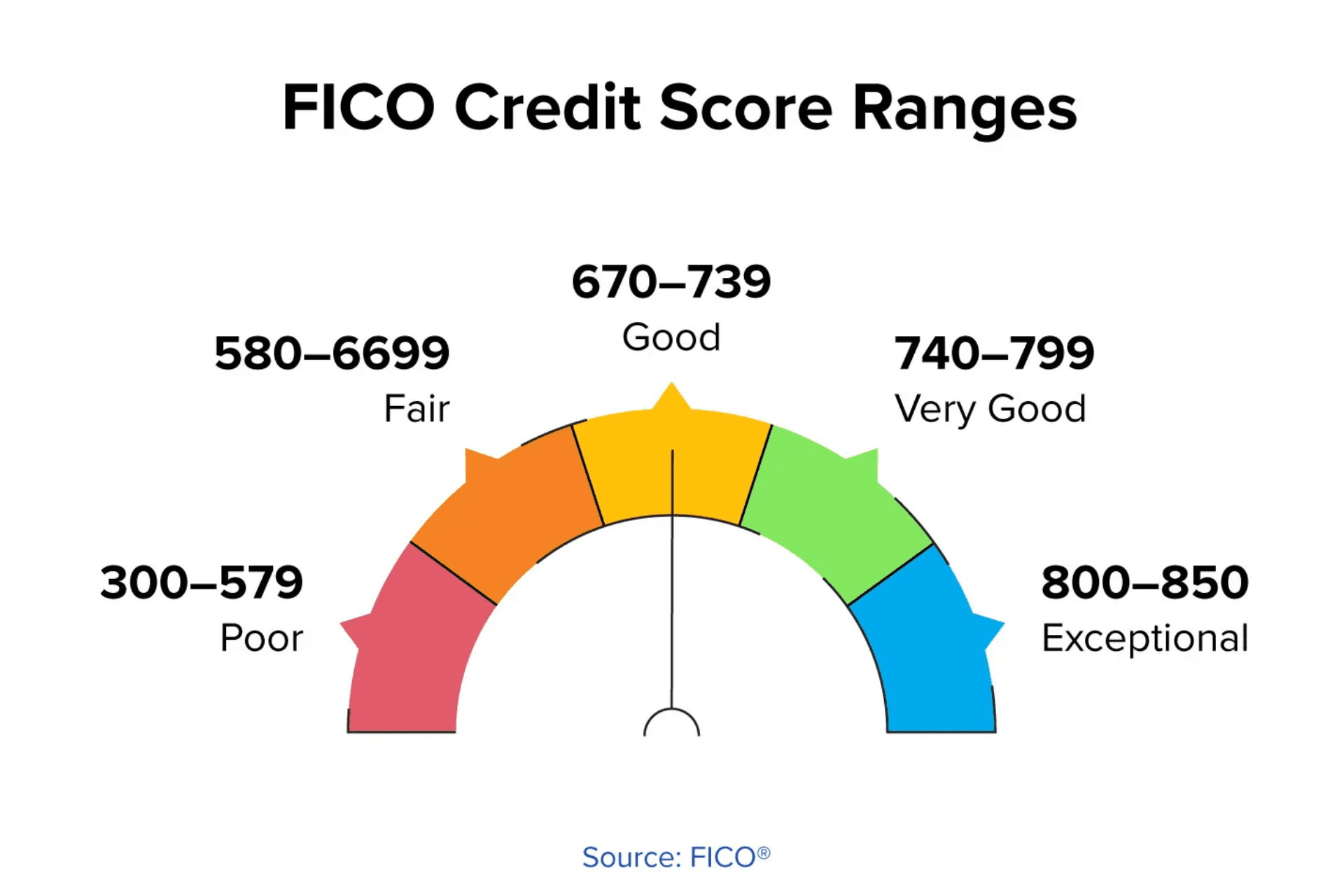
One of life’s most key moments is purchasing a home. But before you begin looking through listings or fantasizing about your ultimate home, there’s one important step you shouldn’t skip—your credit score. A good credit score opens doors to improved mortgage terms, reduced monthly payments, and greater financial freedom. If your score isn’t quite there, don’t panic—there are many methods to rectify it before you buy a house.
What are Credit Scores, and Why are they Important in the Home-Buying Process?
Your credit score is a financial report card. Lenders use it to decide if you can get a loan and what interest rate they’ll charge you. The higher your score, the lower risk for lenders, which means more favorable loan terms for you. If your score is bad, you might still be able to get a mortgage, but you’ll end up paying higher interest rates, which over time can cost you a lot of money.
A strong credit score could be the difference between closing the deal on your dream home with a reasonable mortgage payment or ending up with prohibitively expensive payments that blow your budget. That’s why it’s important to review your credit well in advance of beginning house hunting.
Mortgage Credit Score Requirements
All mortgage options have varying credit score needs. Here’s a breakdown:
- Conventional Loans: Generally require a credit score of 620 or better.
- FHA Loans: Require a 580+ credit score (or 500 with 10% down).
- VA Loans: Don’t have a hard minimum, but 620+ is preferred.
- USDA Loans: Typically require 640 or better.
The better your credit score, the better the terms of your loan. If your credit score is lower than the minimum, spending time to bring it up can get you a better deal.
What Is a Good Credit Score Before Buying a House?
A good credit score depends on the lender, but generally:
- 700+ is a good credit score and gets you favorable loan terms.
- 760+ is great and makes you eligible for the lowest interest rates.
- Less than 620 can make it tough to get a mortgage approved or may involve higher down payments and interest rates.
If your credit score is less than 600 which is considered poor, making it better before taking a mortgage will save you thousands in the lifetime of your loan.
What’s the Average Time to Raise Your Credit Score?
Your credit score won’t magically fix itself overnight, but small efforts can result in dramatic improvements. Depending on your spending and money management habits, you might see improvement in 30-60 days for quick fixes, such as paying off credit card balances. For larger improvements, like repairing bad credit, it might take 6-12 months or more.
How to Increase Your Credit Score Before You Buy a Home
1. Check Your Credit Reports and Scores
Start by checking your credit reports from Experian, Equifax, and TransUnion at AnnualCreditReport.com. Look for errors, such as incorrect late payments or fraudulent accounts, and dispute them immediately.
2. Select Your Target Credit Score
Set a goal based on the mortgage you’re applying for. If you’re close to the minimum required score, small changes can make a big difference.
3. Pay Your Bills on Time
35% of your FICO score is based on your payment history. One late payment can lower your score dramatically. Arrange automatic payments or reminders so you never miss a payment due date.
4. Increase Your Credit Limits and Lower Your Debt Balance
Keeping your credit utilization low is important. Shoot for a utilization ratio of less than 30% of your total available credit. You can work on improving this ratio by paying off debt or asking for a credit limit increase—just don’t use your cards to the limit.
5. Don’t Apply for New Credit Accounts
Every time you take out a credit, the hard inquiry becomes visible on your report, pulling down your score temporarily. Avoid opening new lines of credit and loans in the months before your mortgage application.
6. Try Credit Counseling if You Have Outstanding Debt
If debt is getting too heavy to handle, speaking with a credit counselor can assist you in creating a strategy for paying it off. Most non-profit groups provide free or low-cost credit counseling.
What Determines Your FICO Credit Score?

Learning about how your score is computed will assist you in making better financial choices:
- Payment History (35%) – Most significant factor. Make sure that every bill is paid on time.
- Credit Utilization (30%) – Keep your credit card debt to a minimum.
- Length of Credit History (15%) – The longer you’ve had accounts, the better.
- New Credit Accounts (10%) – Avoid opening too many accounts at once.
- Credit Mix (10%) – Having different types of credit (credit cards, auto loans, etc.) can help boost your score.
5 Tips to Keep Your Credit Score Healthy
A good credit score isn’t exclusive to home buying—it’s a passport to financial security. Here’s how to keep it:
1. Watch Your Credit Closely
Enroll in a credit monitoring program to monitor changes and detect potential fraud before it’s too late.
2. Leave Old Accounts Open
Though you may not use them regularly, old accounts help form your credit history and increase your score.
3. Maintain a Healthy Credit Mix
Lenders prefer that you have a demonstrated ability to use various types of credit wisely. If you can, have a combination of installment loans, credit cards, and other credit sources.
4. Automate Bill Payments
Missing payments can destroy your credit score. Automatic payments guarantee that you never miss a payment deadline.
5. Limit Hard Inquiries
Only seek new credit when absolutely needed. Multiple hard inquiries made within a short time frame can make you appear risky to lenders.
Your credit score is the most effective tool in your financial toolkit. It can save you money, make you less stressed, and position you as a more solid buyer by improving it prior to purchasing a home. Start today by checking your credit report, paying down debt, and making smart financial choices. By the time you’re ready to apply for a mortgage, you’ll have a credit score that works in your favor, opening the door to better loan options and your dream home.




 Kelvin Kam, the Broker of Record for KeyOpp Real Estate and Founder of Sequoia Real Estate, stands out as a pragmatic leader in the real estate domain. Since embarking on his journey in 2003, Kam’s trajectory embodies a strategic fusion of foresight, diversification, and an unwavering commitment to excellence.
Kelvin Kam, the Broker of Record for KeyOpp Real Estate and Founder of Sequoia Real Estate, stands out as a pragmatic leader in the real estate domain. Since embarking on his journey in 2003, Kam’s trajectory embodies a strategic fusion of foresight, diversification, and an unwavering commitment to excellence. Karmen Wong’s journey to real estate was inspired by her positive experience buying a home with her sister over two years ago. Their agent, who was patient and knowledgeable, made the transaction feel like a breeze. This experience, coupled with her Aunt’s belief in real estate investment, ignited Karmen’s interest in pursuing it as a career. She is driven by the opportunity to help others through one of the most significant transactions in their lifetime.
Karmen Wong’s journey to real estate was inspired by her positive experience buying a home with her sister over two years ago. Their agent, who was patient and knowledgeable, made the transaction feel like a breeze. This experience, coupled with her Aunt’s belief in real estate investment, ignited Karmen’s interest in pursuing it as a career. She is driven by the opportunity to help others through one of the most significant transactions in their lifetime. Eileen Chau’s journey to real estate was inspired by her childhood experiences in a family business and frequent relocations, fostering an intrigue for architecture, interior design, and negotiation styles unique to different cities. This diverse background naturally led her to become a real estate agent, where she could seamlessly merge her passions.
Eileen Chau’s journey to real estate was inspired by her childhood experiences in a family business and frequent relocations, fostering an intrigue for architecture, interior design, and negotiation styles unique to different cities. This diverse background naturally led her to become a real estate agent, where she could seamlessly merge her passions. Letty, a proud native of San Francisco, brings a wealth of diverse experiences in her role as a Realtor. Having lived in neighborhoods such as Crocker Amazon, Ingleside, and Sunset and attended schools in Chinatown, Mission, Balboa Terrace, Parkside and Park Merced, she offers direct knowledge and experiences of the vast communities in San Francisco.
Letty, a proud native of San Francisco, brings a wealth of diverse experiences in her role as a Realtor. Having lived in neighborhoods such as Crocker Amazon, Ingleside, and Sunset and attended schools in Chinatown, Mission, Balboa Terrace, Parkside and Park Merced, she offers direct knowledge and experiences of the vast communities in San Francisco.
 Katrina embarked on her professional journey as a Digital Marketing Specialist in Real Estate right after graduating in 2019 with a Bachelor of Arts in Business Administration, majoring in Marketing Management. Her role sparked a passion for creativity and learning in real estate advertising, aligning perfectly with her business-minded nature and aspirations to own a business one day. With five years of experience under her belt, Katrina is particularly drawn to the ever-evolving nature of marketing, which challenges her to continuously learn and adapt to new technologies.
Katrina embarked on her professional journey as a Digital Marketing Specialist in Real Estate right after graduating in 2019 with a Bachelor of Arts in Business Administration, majoring in Marketing Management. Her role sparked a passion for creativity and learning in real estate advertising, aligning perfectly with her business-minded nature and aspirations to own a business one day. With five years of experience under her belt, Katrina is particularly drawn to the ever-evolving nature of marketing, which challenges her to continuously learn and adapt to new technologies. I began my Real Estate career in 2020 as a Compliance Transaction Coordinator. I was their very first virtual assistant. As a pioneer, I finally became team leader.
I began my Real Estate career in 2020 as a Compliance Transaction Coordinator. I was their very first virtual assistant. As a pioneer, I finally became team leader. I’m a Realtor, Investor, Developer, and a Mother of two children. I’ve project-managed over $40 million in residential developments in San Francisco and the Bay Area. I am originally from Vancouver, Canada and moved in 2000 to the Bay Area where I began in Commercial Banking and then Title & Escrow Sales. Furthering my passion in Real Estate, I purchased my first out-of-state investment property in 2003, and first home in 2005, I’ve learned the meaning of cash flow, and since then have rehabbed and lived in multiple duplexes and single family homes in San Francisco. I love the multi-facets of Real Estate investing, and sharing this knowledge with friends so that we can all grow together and reach financial freedom.
I’m a Realtor, Investor, Developer, and a Mother of two children. I’ve project-managed over $40 million in residential developments in San Francisco and the Bay Area. I am originally from Vancouver, Canada and moved in 2000 to the Bay Area where I began in Commercial Banking and then Title & Escrow Sales. Furthering my passion in Real Estate, I purchased my first out-of-state investment property in 2003, and first home in 2005, I’ve learned the meaning of cash flow, and since then have rehabbed and lived in multiple duplexes and single family homes in San Francisco. I love the multi-facets of Real Estate investing, and sharing this knowledge with friends so that we can all grow together and reach financial freedom. With over 30 years of real estate experience, Lawrence brings a family-focused approach to Real Estate. Starting early on by assisting his father with hands-on repairs and maintenance with various properties and later assisting with the backend operational processes, Lawrence along with his wife Melanie Leung have a developed multiple businesses focusing on all aspect of Real Estate including, but not limited to, Property Management, Investment Strategies as well as Buyer and Seller Representation. By working in multiple aspects of the real estate process, he brings a multi-faceted perspective to the buying and investment process. As a duo team with a strong knowledge of property investment, Lawrence is able to provide all the necessities an investor needs to make the smart choices.
With over 30 years of real estate experience, Lawrence brings a family-focused approach to Real Estate. Starting early on by assisting his father with hands-on repairs and maintenance with various properties and later assisting with the backend operational processes, Lawrence along with his wife Melanie Leung have a developed multiple businesses focusing on all aspect of Real Estate including, but not limited to, Property Management, Investment Strategies as well as Buyer and Seller Representation. By working in multiple aspects of the real estate process, he brings a multi-faceted perspective to the buying and investment process. As a duo team with a strong knowledge of property investment, Lawrence is able to provide all the necessities an investor needs to make the smart choices. Having grown up with parents working in real estate, I found my passion for this industry at an early age. I chose to follow in their footsteps after seeing how many clients they were able to help fulfill the American Dream of Home Ownership. After 7 years of working extensively in the San Francisco Bay Area, I have developed a keen understanding of the local market and always take the time to figure out what clients really need from me as a professional real estate broker. I take pride in serving my clients with the utmost level of care and professionalism. It is my job to ensure a smooth, worry-free, and satisfying experience for everyone involved.
Having grown up with parents working in real estate, I found my passion for this industry at an early age. I chose to follow in their footsteps after seeing how many clients they were able to help fulfill the American Dream of Home Ownership. After 7 years of working extensively in the San Francisco Bay Area, I have developed a keen understanding of the local market and always take the time to figure out what clients really need from me as a professional real estate broker. I take pride in serving my clients with the utmost level of care and professionalism. It is my job to ensure a smooth, worry-free, and satisfying experience for everyone involved.